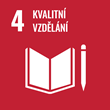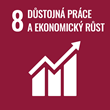Informace o projektu
Networks of Dissent: Computational Modelling of Dissident and Inquisitorial Cultures in Medieval Europe
(DISSINET)

- Kód projektu
- 101000442
- Období řešení
- 9/2021 - 8/2026
- Investor / Programový rámec / typ projektu
-
Evropská unie
- Horizon 2020
- ERC (Excellent Science)
- Fakulta / Pracoviště MU
-
Filozofická fakulta
- prof. PhDr. David Zbíral, Ph.D.
- Stanisław Leon Banach, MA
- Zoltán Brys, MA
- Larissa de Freitas Lyth, M.A.
- José Luis Estévez Navarro, M.Sc., M.A.
- Mgr. Tomáš Hampejs, Ph.D.
- Gideon Kotzé, PhD
- Katia Riccardo, MA
- Davor Salihović, Doctor of Philosophy
- Robert Laurence John Shaw, Doctor of Philosophy
- Kaarel Sikk, M.A., Docteur en Géohraphie
- Katalin Suba, MA
This project will deliver a major breakthrough in the understanding of the social and spatial aspects of dissident religious cultures and their repression in medieval Europe. Our approach combines the close reading of inquisitorial trial records that cover more than 20,000 individuals from the 13th to 16th centuries, the modelling of these texts in a richly structured database, and computational techniques well-adapted to uncover hitherto undetected and historically significant patterns within these sources: social network analysis, geographic information science, and quantitative text analysis. Retaining qualitative as well as quantitative detail, we will use these approaches to address major historical and theoretical questions concerning the nature of dissident religious cultures in medieval Europe, their social microstructure and spatiality, their specifics as well as general characteristics, inquisitorial records and procedures, and the interaction and information flow between inquisitors and deponents. The project will also open up a significant new dimension in the conversation between history, the social sciences, and the digital humanities. On the theoretical level, we will target the bottom-up emergence of larger social phenomena such as authority, collective action and shared religious culture from local interactions between particular actors. On the methodological level, we propose a novel way for storing and retrieving the complex and often fuzzy data derived from challenging historical sources, as well as a largely unprecedented use of computational modelling to analyse the detail they contain. We will thereby provide the research community with a coherent and powerful digital toolkit for historical research into complex human phenomena, one that unlocks otherwise inaccessible insights on the societies of the past through computational techniques and that simultaneously puts source-critical questions at the heart of analysis.
Cíle udržitelného rozvoje
Masarykova univerzita se hlásí k cílům udržitelného rozvoje OSN, jejichž záměrem je do roku 2030 zlepšit podmínky a kvalitu života na naší planetě.
Publikace
Počet publikací: 55
2022
-
Talking Heresy : Illicit Speech and the Transmission of Religious Message in the Trial Records of Kent Lollards (1511–12)
Rok: 2022, druh: Další prezentace na konferencích
-
The inquisitorial punishment of belief : a statistical analysis of the effects of social and theological beliefs in Peter Seila’s register of sentences (1241-2)
Rok: 2022, druh: Další prezentace na konferencích
-
Utilizing complexity : from thinking religion top-down as complex-adaptive-system towards a bottom-up practice of local null-model building
Rok: 2022, druh: Další prezentace na konferencích
-
What Social Network Analysis Can Teach us about the Transmission of Dissidence among Kent Lollards
Rok: 2022, druh: Další prezentace na konferencích


